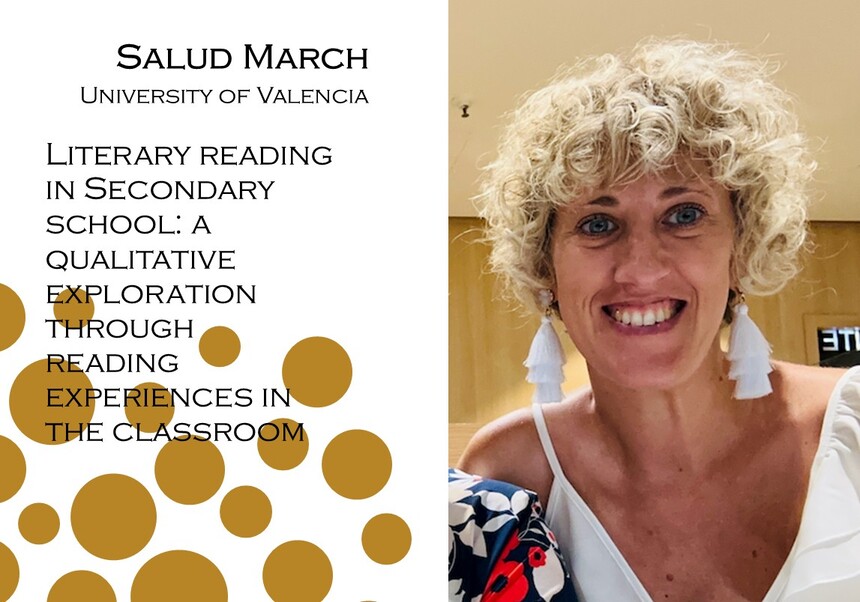
November 21, 2025 – 1:00 p.m. On-site and online session (Room M204, Faculty of Psychology and Speech Therapy). Language: Spanish.
Salud March
University of Valencia
The educational system and society assign high value to literary reading (social, formative, personal, cultural), and data suggest that there is a large group of young people with sufficient reading skills to interact responsibly and maturely with their environment. However, the concrete implications of the literary reception process among students during classes in which they interact with a literary text remain largely unknown. Several studies have investigated the reading habits of lower and upper secondary students, as well as university students, both inside and outside the classroom, and have confirmed that although reading is positively valued by respondents, it is not among their preferences—neither during school hours nor in their free time. So, how can literary reading be analysed as a behavioural practice within the school setting?
This research on reading experiences seeks to explore the student’s subjectivity in their process of literary reception in the classroom with a text proposed by the teacher. The aim is to find out how a text, not chosen by the reader, can be linked to the student's world. How can we appreciate the student’s literary experience, and what elements stand out in it? How can we offer adolescents in the classroom new sources of reading pleasure? In literature, do knowledge and enjoyment go hand in hand?
This exploration pursues two objectives. The first is to examine which aspects of a set of literary texts, previously selected by the teacher, awaken an interest in prescriptive literary reading in the secondary classroom. To this end, information will be gathered on the specific aspects of the literary texts most appreciated by students; the reading experiences carried out in class will be analysed to determine whether a sense of enjoyment is activated, and we will explore what adolescents experience when their interest in reading is sparked by a text they did not choose. The second objective concerns identifying, according to the students, which noteworthy aspects of reading can be transferred to autonomous and voluntary reading outside the classroom, and thus determining the similarities (or differences) between reading enjoyment inside and outside the school environment.
Bio
My heart is happily split between my two passions: communication and education—both tied to the power of words. I trained as a journalist, and life gifted me teaching. I have been teaching language classes in Torrent for almost 22 years. I usually work through projects and carry out individual tutoring tasks in lower secondary education, and I manage teams of teenagers… quite a challenge! By discovering everything that neurolinguistics and behavioural modelling (DBM) have to offer, I keep feeding my curiosity as an eternal student. I am now immersed in a new challenge: a PhD in the didactics of literature, exploring the reading experiences of adolescents in secondary classrooms. I am convinced that literature is a true lifesaver.






